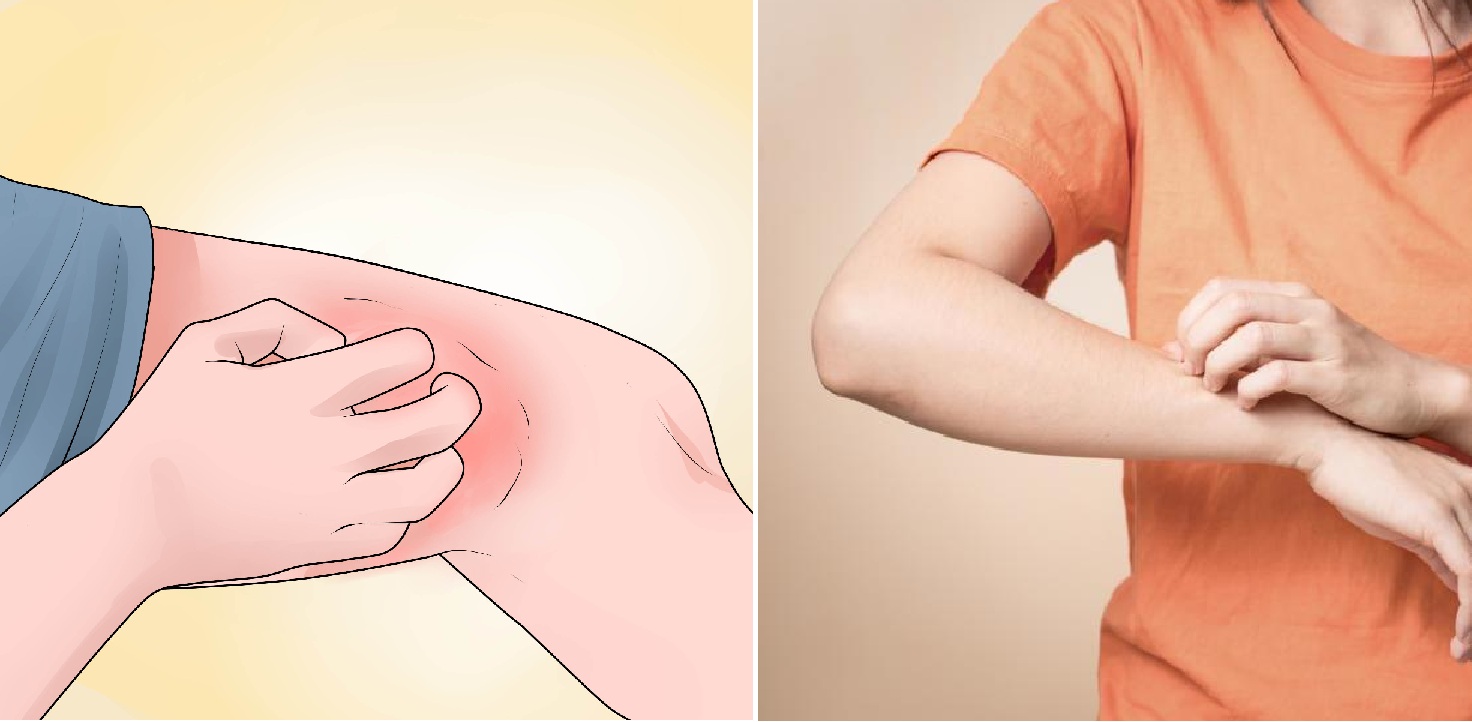Both psoriasis and eczema are inflamed skin conditions that cause itchy, red and swollen skin.
Even though both psoriasis and eczema have symptoms that are overlapping, they are in fact two very different conditions.
Coinciding symptoms include itchiness and inflammation of the skin, accompanied by red sore skin patches that are often painful and irritating.
However, eczema and psoriasis are not the same disease and should be treated each in a different manner.

Psoriasis
Psoriasis is a lifelong autoimmune disorder, thought to be hereditary and most common in adults.
There are 5 known types of psoriasis: Inverse, Pustular, Plaque, Guttate, and Erythrodermic.
Plaque psoriasis is the most common type of the disease and its symptoms include thick, red, elevated areas of the skin covered with a buildup of dead skin cells, often silvery-white. These dead skin flakes can be removed with the help of ointments and medications. Psoriasis can appear on the scalp, lower back, knees or elbows. It can be in form of small patches or throughout the whole body.
Even though psoriasis is thought to be a genetic disease it can also be triggered by environmental factors, such as certain medications, infections or psychological stress. Psoriasis is not a curable disease but there are treatments that can help ease and control the symptoms. Steroid ointments and creams, Vitamin D cream and medications for suppressing the immune system are part of the psoriasis treatment.
Eczema
Eczema, also known as dermatitis, is a disease of the skin that as in psoriasis, results in inflammation of the skin. It is accompanied by red skin, rash, and itchiness. But this condition can come and go. It is thought to be an environmental triggered condition in which the affected parts can vary- from a small area of the skin to the entire body.
An eczema is a group of skin disorders that can be activated from irritants; irritant contact dermatitis, allergy; allergic contact dermatitis, as well as atopic and stasis dermatitis. The exact reason for this disorder is often uncertain. Dermatitis can occur at any age but is most common in children.
Parts of the body that eczema often shows up on are parts that bend- joints, behind the knees, wrists, ankles, and fingers.
Treatment for eczema are antihistamines, moisturizers, antibiotics or steroid creams, depending on the severity of the case.
